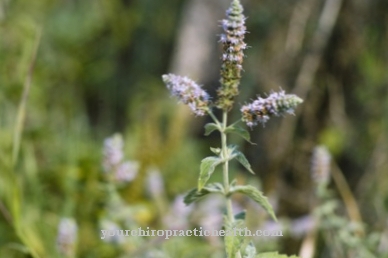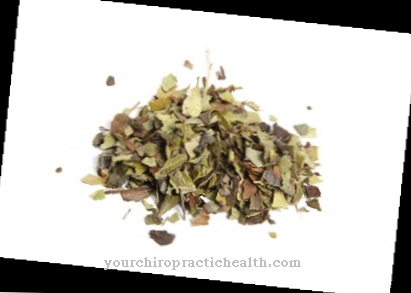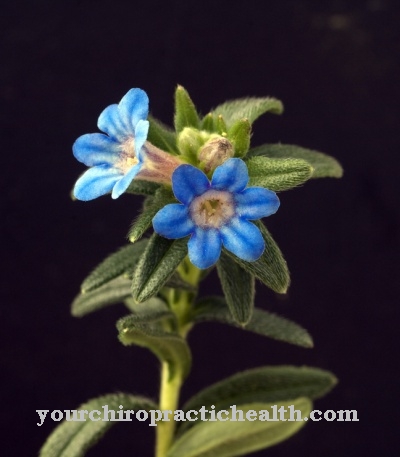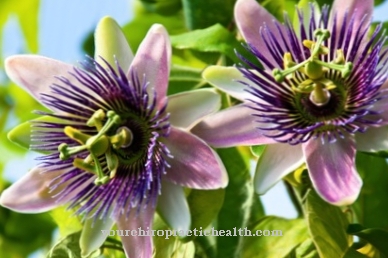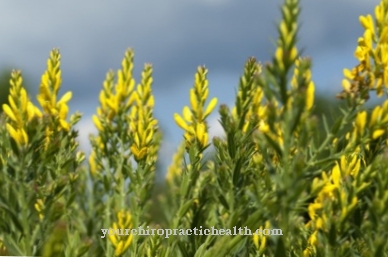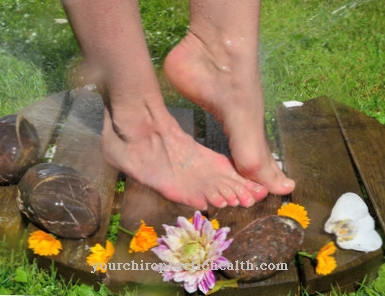Of the eucalyptus (Eucalyptus) is assigned to the myrtle family. It is also known under the name blue rubber tree. There are more than 800 species in total.
Occurrence & cultivation of eucalyptus

The plants are native to Australia and the eastern part of Indonesia. But they can also be found in other warm regions of the world, including Brazil and Spain.
Eucalyptus have a smooth trunk. When young, their leaves are blue-green in color and oval in shape. The gray-green subsequent leaves are sickle-shaped, their edges smooth. The flowers of the eucalyptus are whitish.
As a rule, the trees can reach a height of up to 60 meters. In Tasmania, however, a specimen of a giant eucalyptus with a height of almost one hundred meters was discovered. This species, which can live up to 400 years, is considered to be the tallest deciduous tree in the world.
Application & use
The leaves of the eucalyptus tree contain essential oil, which is obtained by steam distillation. This substance is then used for various medicinal purposes. Among other things, eucalyptus oil has an expectorant effect and can therefore be used to treat colds.
The positive effect is mainly due to the ingredient 1,8-cineole, of which the oil largely consists. For example, eucalyptus oil can be found in cold capsules, baths and balms. The active ingredient is also found in teas, drops, lozenges and cough drops. In many remedies, eucalyptus oil is supplemented by other essential oils that are obtained from thyme or rosemary, for example.
It is also available as a natural oil, for example for inhalation purposes. The tree's blossoms are also used to make eucalyptus honey. Because eucalyptus has antiseptic properties, it was used in the early 19th century to treat wounds and disinfect medical equipment. Eucalyptus oil must always be used in a diluted form in order to avoid irritation of the mucous membranes. In addition, bath additives containing the active ingredient must not be dosed too high. The oil must not be used in the mouth and nose area of infants and young children.
Anyone who suffers from varicose veins, febrile infections, cardiovascular problems or asthma should consult a doctor before using the appropriate remedies. Asthma patients should never use eucalyptus oil for inhalation, as this can cause asthma attacks.
In addition, it must not be used on people with liver, biliary or gastrointestinal problems. People who do not have any of these symptoms should be able to use eucalyptus oil without hesitation. Advice from the pharmacist regarding dosage and use can nevertheless be recommended.
Significance for health, treatment & prevention
Eucalyptus oil is a natural remedy to counteract various ailments and diseases. It is particularly effective for diseases of the respiratory tract, such as coughs, hoarseness, runny nose, angina or bronchitis; its antibacterial and antiviral effects effectively fight many pathogens. However, the oil not only supports the mucus solution in the bronchi and paranasal sinuses, it also promotes blood circulation and has a sweaty effect.
Eucalyptus also has positive effects on otitis media. If the active ingredient is used as a decoction, bladder and other urinary tract infections can be relieved. Eucalyptus oil also has a calming and antispasmodic effect. But it not only helps to alleviate and fight diseases, but can also be used preventively. Eucalyptus teas and sweets are particularly suitable to prevent colds.
If you use the oil in an aroma lamp, you can prevent flu and cold germs from spreading within rooms. Eucalyptus oil is also contained in rheumatic ointments. Headaches can also be relieved by using the oil in the temple area. Eucalyptus also reduces blood sugar levels. Applied externally, the active ingredient can also help against blemished skin and acne as well as relieve muscle pain. Its cooling effect is particularly valued for burns.
However, positive effects can be achieved not only in physical, also in psychological terms, for example in the case of depressive moods and lethargy. Another benefit is the ability to concentrate. Eucalyptus is also found in some sauna infusions, which in turn can have a positive effect on the respiratory tract.

